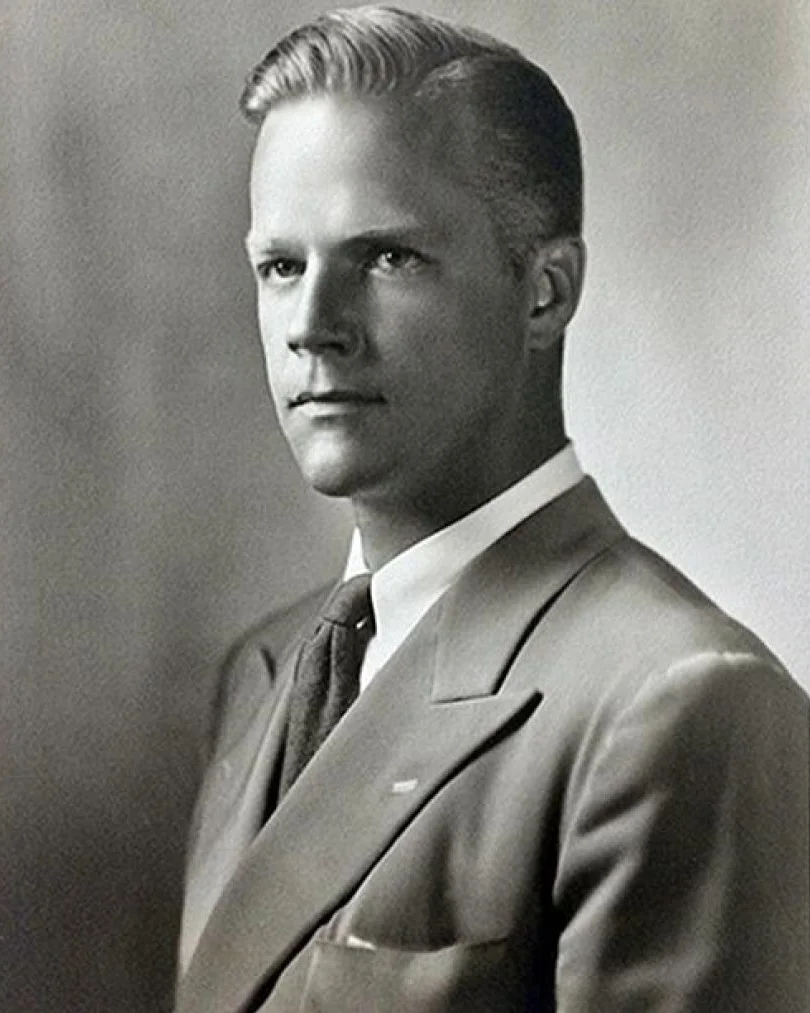Van T Barfoot
Van was born in Edinburg, Mississippi, on the 15th of June, 1919 and while his grandmother was Choctaw, a Native American tribe that originally occupied what is now Alabama, Florida, Mississippi, and Louisiana, his parents never enrolled him as an official member of the Choctaw Nation. When he was 21, he enlisted in the US Army and served with the 1st Infantry Division in Louisiana and Puerto Rico after completing his training. Van had been promoted to Sergeant before being transferred to Quantico, Virginia, where he served with the Headquarters Amphibious Force Atlantic Fleet until 1943. He was next deployed to Europe with the 157th Infantry Regiment as part of the Italian Campaign and took part of three amphibious landings at Sicily, Salerno, and Anzio. Van, now a Technical Sergeant, and his unit had pushed inland after Anzio and when they reached the town of Carano, they set up defensive positions and performed patrols in order to find German lines. It was Van's actions here that would earn him the Medal of Honor. The citation reads:
For conspicuous gallantry and intrepidity at the risk of life above and beyond the call of duty on 23 May 1944, near Carano, Italy. With his platoon heavily engaged during an assault against forces well entrenched on commanding ground, 2d Lt. Barfoot (then Tech. Sgt.) moved off alone upon the enemy left flank. He crawled to the proximity of 1 machine gun nest and made a direct hit on it with a hand grenade, killing 2 and wounding 3 Germans. He continued along the German defense line to another machine gun emplacement, and with his tommy gun killed 2 and captured 3 soldiers. Members of another enemy machine gun crew then abandoned their position and gave themselves up to Sgt. Barfoot. Leaving the prisoners for his support squad to pick up, he proceeded to mop up positions in the immediate area, capturing more prisoners and bringing his total count to 17. Later that day, after he had reorganized his men and consolidated the newly captured ground, the enemy launched a fierce armored counterattack directly at his platoon positions. Securing a bazooka, Sgt. Barfoot took up an exposed position directly in front of 3 advancing Mark VI tanks. From a distance of 75 yards his first shot destroyed the track of the leading tank, effectively disabling it, while the other 2 changed direction toward the flank. As the crew of the disabled tank dismounted, Sgt. Barfoot killed 3 of them with his tommy gun. He continued onward into enemy terrain and destroyed a recently abandoned German fieldpiece with a demolition charge placed in the breech. While returning to his platoon position, Sgt. Barfoot, though greatly fatigued by his Herculean efforts, assisted 2 of his seriously wounded men 1,700 yards to a position of safety. Sgt. Barfoot's extraordinary heroism, demonstration of magnificent valor, and aggressive determination in the face of pointblank fire are a perpetual inspiration to his fellow soldiers.
Van received a promotion and commission to Second Lieutenant before moving with his division into France. He learned that he would be receiving the Medal of Honor in September of 1944 and chose to have the ceremony in a field so that his unit could attend, which they did on the 28th of September in Epinal, France.
Van returned home after the war but went on to serve in both the Korean War and the Vietnam War. By the time he retired in 1974, after 34 years of service, he had been awarded the Silver Star, the Bronze Star, three Purple Hearts, and had reached the rank of Colonel. He spent his retirement on a farm in Virginia and on the 9th of October, 2009, a section of Mississippi Highway 16 that runs through his hometown was named in his honor. Two months later, Van was involved in a flagpole dispute with the Homeowner's Association in the community where he had moved to. He had put up a 21 foot pole without approval and had been flying the US flag regularly. The HOA ordered it to be taken down and threatened legal action even though their bylaws did not forbid flagpoles. Once the story was mentioned on a local talk radio show, it was picked up by other new networks and many military groups, politicians, and 48,000 people on a Facebook page joined Van in support of his contesting of the order. Within one week, the HOA dropped the request.
On the 29th of February, 2012, Van Thomas Barfoot took a fall in his home and suffered a skull fracture and bleeding in the brain, which he died from two days later on the 2nd of March at the age of 92. He is buried with his wife Norma in the H. C. Smither Memorial Cemetery in Hudgins, Virginia.




